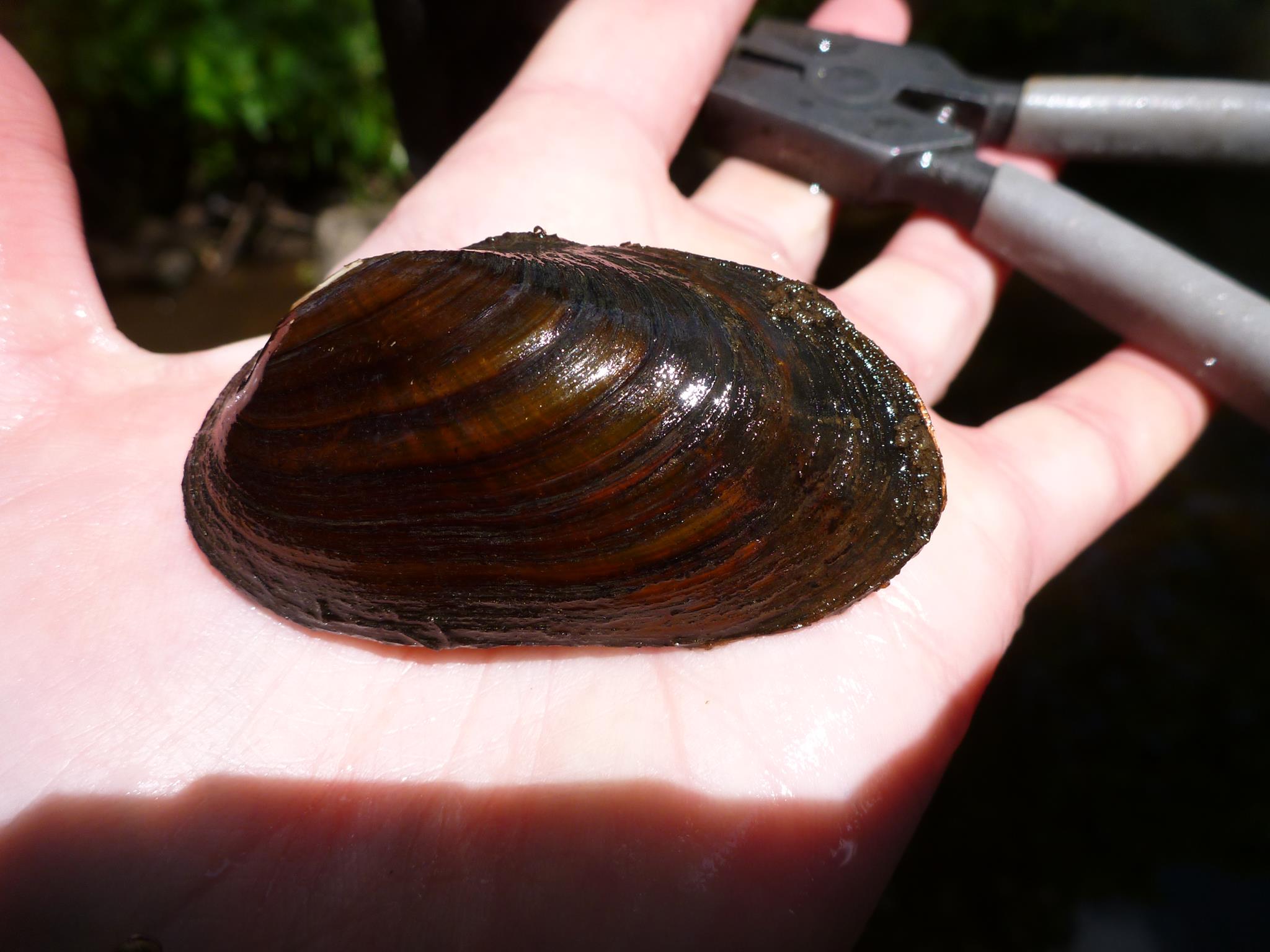Lea Schneider, Anders Nilsson, and Martin Österling from Karlstad University, recently published the scientific article “Evaluating temperature- and host-dependent reproduction in the parasitic freshwater mussel Unio crassus” in the journal Hydrobiologia. In the article they present a study on the thick shelled river mussel (Unio crassus) and its release of glochidia (mussel larvae) in different temperature regimes.
In the abstract they write: “Adaptation to temperature regimes and host presence may enhance fitness in parasites. In an experimental study, we evaluated the timing of glochidia release by Unio crassus subjected to three spring water temperature regimes in the presence and absence of the host fish Cottus gobio. The timing of glochidia release was delayed at (i) constantly low temperatures (<10°C), in contrast to earlier and pronounced releases at (ii) natural temperature increases that level off at intermediate temperatures (10–15°C), and (iii) higher-than-normal temperatures (10–20°C). Mussels from treatment (i) that had not released glochidia during the experiment did so soon after being moved to the temperature in (ii), indicating a temperature threshold for glochidia release. Neither host fish presence nor the combined effect of temperature and host fish presence significantly affected the timing of glochidia release. The treatment with natural spring water temperatures indicated possible fitness benefits for U. crassus through combined effects of high intensities of glochidia releases and high survival of released glochidia. The furthered understanding of climate change effects on mussel and host phenology in seasonal environments, potentially inducing temporal mismatches of glochidia release to host availability, is key to mussel conservation.”
Acces the paper here: Evaluating temperature- and host-dependent reproduction in the parasitic freshwater mussel Unio crassus
The research was part of the LIFE project UCforLIFE. Read more about the thick shelled river mussel and related conservation work at the projects homepage: www.ucforlife.se



